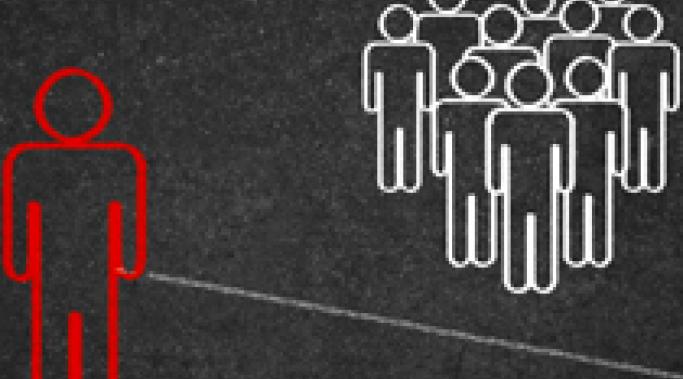Let's face it--Facebook attracts some toxic people and you need to know how to handle toxic people on Facebook. Whether they're posting belittling comments or mocking any honest, heartfelt post, they leave you feeling worse than before you read their comment. There are three major types of toxic people on Facebook, and the good news is there are ways to deal with people with issues. Here are the three toxic people on Facebook and how to handle them.
Stigma - Recovering from Mental Illness
I have a mental illness--a disability--but should I check the "disability" box when applying for a job? I recently was laid off at one job and had my hours cut at another, for a total loss of around $500 in income per month. I've dusted off my resumes and started applying for jobs, but have been hindered by a question: "Should I check the disability box?" Several businesses claim to be equal opportunity employers and make an effort to hire people with disabilities (Should You Disclose Mental Illness in the Workplace?). But can we trust them not to discriminate? Should we check the box that says we have a mental illness disability?
Ever since his election many people, including some mental health professionals, have been speculating on President Donald Trump's mental health. This is unethical and dangerous. President Trump may or may not have a mental illness, but going public about it should be his decision. And his diagnosis, if any, should be between him and his doctor. Speculating on his mental health reinforces mental health stigma and keeps people from seeking help (Are You Afraid to Ask for Mental Health Help?). It's time to stop speculating on President Donald Trump's mental health.
There are three myths about hospitalization that keep people from seeking mental illness treatment when they need it most (Facts About Psychiatric Hospitalization). When I first started having symptoms, I believed all three myths. They kept me from seeking psychiatric treatment for about two years. Ironically, if I'd sought treatment when I first started having symptoms, I might have avoided the first hospitalization. Here are the three myths about hospitalization that keep people from seeking mental illness treatment.
Halloween can be a fun holiday, but Halloween can also spread myths about mental illness. The main ones all have to do with stigma--that we are violent and unpredictable, that hospitalization is traumatic and abusive, and that there is no such thing as recovery. Mental illness is the only medical condition shown for shock value on Halloween--you never see haunted cancer wards, for example. Here are some myths Halloween spreads about mental illness and how to combat them.
It is always sad when faith and mental health stigma go hand in hand (Abused for Christ: When Religion Becomes Painful). Recently I was interviewed by a reporter about the stigma attached to mental health in a faith community.
How does one recover from sexually predatory behavior? Donald Trump's recent comments have sparked an avalanche of ugly behavior and comments. What stood out to me was his remark that the women a celebrity abused would not do anything about it because the celebrity is in a position of power--classic sexual predator logic. But some people, despite all the risks, do come forward and have the courage to heal (The Cosby Case Can Teach Us Three Lessons). Here is how we go about recovering from sexually predatory behavior.
Mental health stigma is discrimination. According to the US Surgeon General, stigma is the number one barrier to treatment. This stigma can lead to people with a brain disorder being denied jobs, housing, and services. For example, I was once asked about my mental illness during a job interview and was denied the job even though I had two years of experience and excellent references. I also was discharged from the military after being diagnosed with mental illness. Stigma is really a fancy word for discrimination.
There are three lessons vital to rape survivors. With convicted sex offender Brock Turner's release from prison and Jared Fogle's lawsuit blaming the victim's parents for her "destructive behavior," sexual assault has been in the media a lot lately. I, myself, am a sexual assault survivor whose attacker got off on a technicality. Part of my healing was writing a recently published Bible study for sexual assault survivors. There were three lessons I learned that are vital to rape survivors.
A recent incident made me think about if force should be used against a person with mental illness. I recently was notified of an incident in which a prisoner with mental illness attempted to end her life after extended solitary confinement. Although she was unconscious when the cell force team entered, she is facing charges for "resisting." Absurdity of the charge aside, it raises a valid question: should force be used against someone with mental illness?









